After nearly 28 years of a life sentence, Lamar Johnson, 50, was cleared of murder on Tuesday.
Johnson has denied murdering his 25-year-old friend Marcus Boyd since 1994.
“Evidence so reliable” that Johnson was innocent “really passes the test of clear and convincing,” said Missouri judge David Mason.

Johnson exited the courthouse lobby two hours after the ruling on 14 February, thanking the judge and everybody who worked on his cause and declining further interviews.
St. Louis Circuit Attorney Kim Gardner, who filed a motion to free Johnson in August after the Innocence Project convinced her he was telling the truth, praised the verdict.
Mr. Johnson. Thanks. “You’re free,” she told media.
Gardner advised Johnson visit his lawyers and relatives.
‘This is historical Valentine’s Day,’ she said.
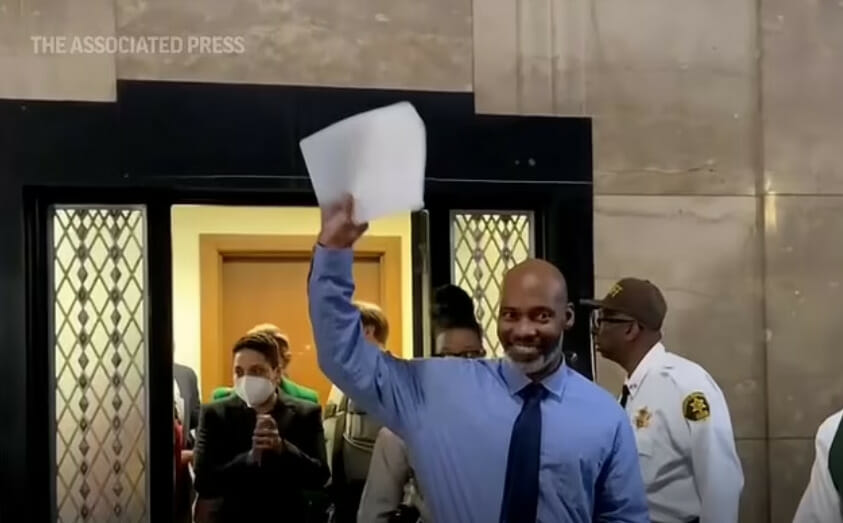
Republicans imprisoned Johnson.
Office official Madeline Sieren said the probe will be ended by email.
The office continued to imprison Johnson.
Attorney General (Andrew) Bailey pledged to uphold the law when sworn in. Sieren wrote.
‘Our office upheld the rule of law and endeavoured to uphold the initial verdict that a jury of Johnson’s peers found proper based on the trial facts.’
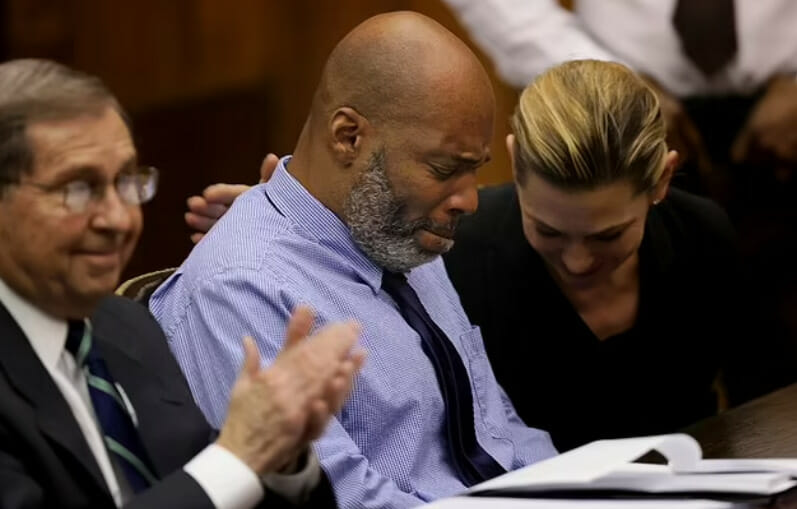
Johnson’s attorneys stated the state attorney general’s office “never ceased insisting Lamar was guilty and was comfortable to have him languish and die in prison” during the hearing.
‘Yet, when this State’s top law enforcement official could hide from a courtroom no more, it presented nothing to dispute the huge volume of evidence that the circuit attorney and Lamar Johnson had compiled,’ they said.
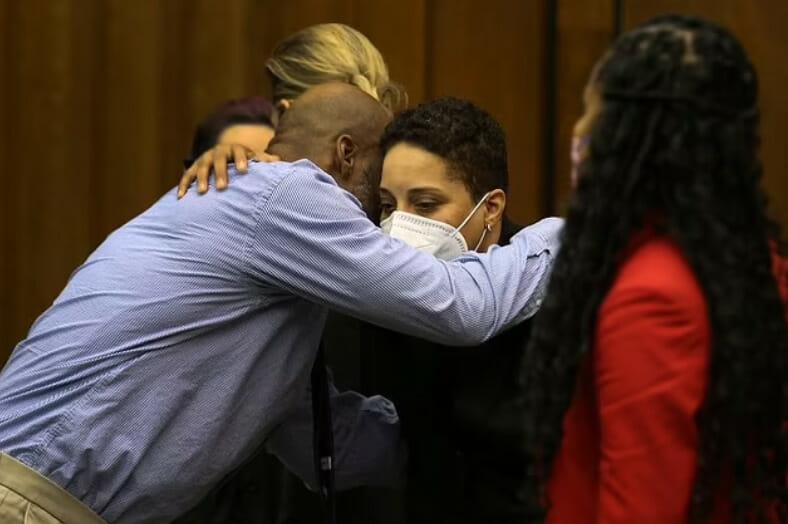
His lawyers said Johnson wanted to reunite with his family and enjoy things he was denied for most of his adult life inside.
Today’s joy can’t make up for the state’s theft. They said nothing will repair his nearly three decades away from his girls and family.
At his trial, people who saw no value in two young Black males from the South Side buried or ignored the evidence that proved his innocence.
DNA wasn’t involved, thus Johnson won’t get paid.
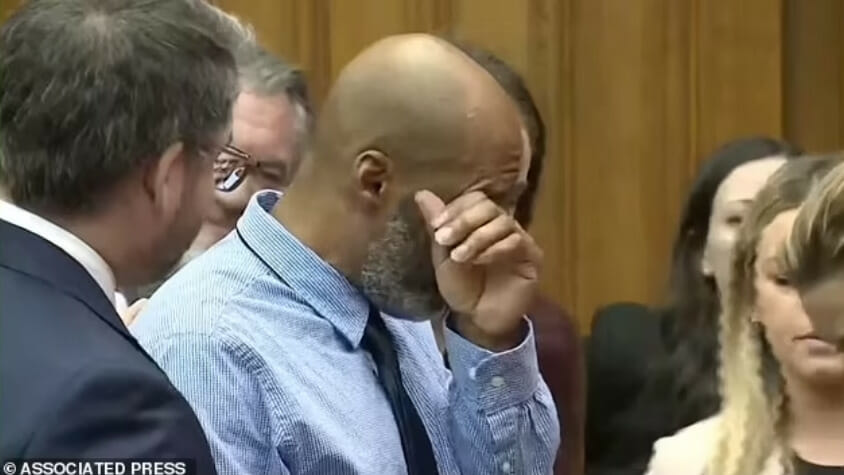
Missouri rarely pays exonerees.
Johnson was convicted of murder after two masked men shot Marcus Boyd on his doorway in October 1994.
Police and prosecutors alleged the murder was over drug money.
Johnson stated he was with his girlfriend during the crime.
Second suspect Phil Campbell pleaded guilty to a reduced charge for a seven-year term, but Johnson was convicted and sentenced to life.
In December, Johnson testified that he was with his girlfriend on the night of the crime, save for a few minutes when he left a friend’s house to sell drugs on a corner several blocks from the victim’s murder.
Johnson’s ex-girlfriend Erika Barrow testified that she was with him entire night except for a five-minute drug sale break. She added Johnson couldn’t get there and back in five minutes due to the friend’s and Boyd’s residences’ distance.
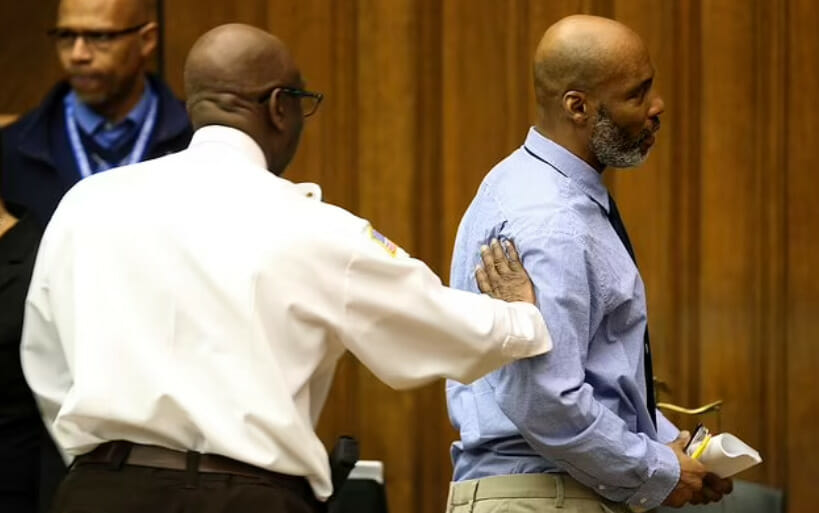
A key witness recanted and a prisoner said he killed Campbell, not Johnson.
James Howard, 46, was sentenced to life for murder and other offences three years after Boyd was slain.
He testified that he and Campbell robbed Boyd because he owed a friend from drug transactions. Johnson was absent.
Howard said he shot Boyd in the neck and back, and Campbell shot him in the side.
Howard and Campbell signed statements acknowledging the crime and denying Johnson’s involvement. Campbell died.
James Gregory Elking testified in December that he and Boyd were on the front porch trying to buy crack cocaine when the two gunmen with black ski masks came around the house and started the attack.
Elking initially told police he couldn’t identify the gunmen.
He observed the lineup. Elking said Detective Joseph Nickerson told him, “I believe you know who it is,” and begged him to “help get these folks off the street” when he could not identify a shooter from the lineup.
Elking named Johnson a shooter after feeling “bullied” and “pressured.” Gardner’s office said Elking earned at least $4,000 for testifying.
He stated incarcerating Johnson haunted him.
Nickerson denied coercing Elking. He testified in December that Elking identified Johnson by the shooter’s eyes. Nickerson said Johnson’s eyes differ. ‘It’s apparent.’
1995 prosecutor Dwight Warren said Johnson’s main evidence was a jail cell talk. According to jailhouse informant William Mock, Campbell and Johnson said, “We should have shot the white boy,” alluding to Elking.
Warren called Johnson’s conviction “iffy” without Mock’s testimony.